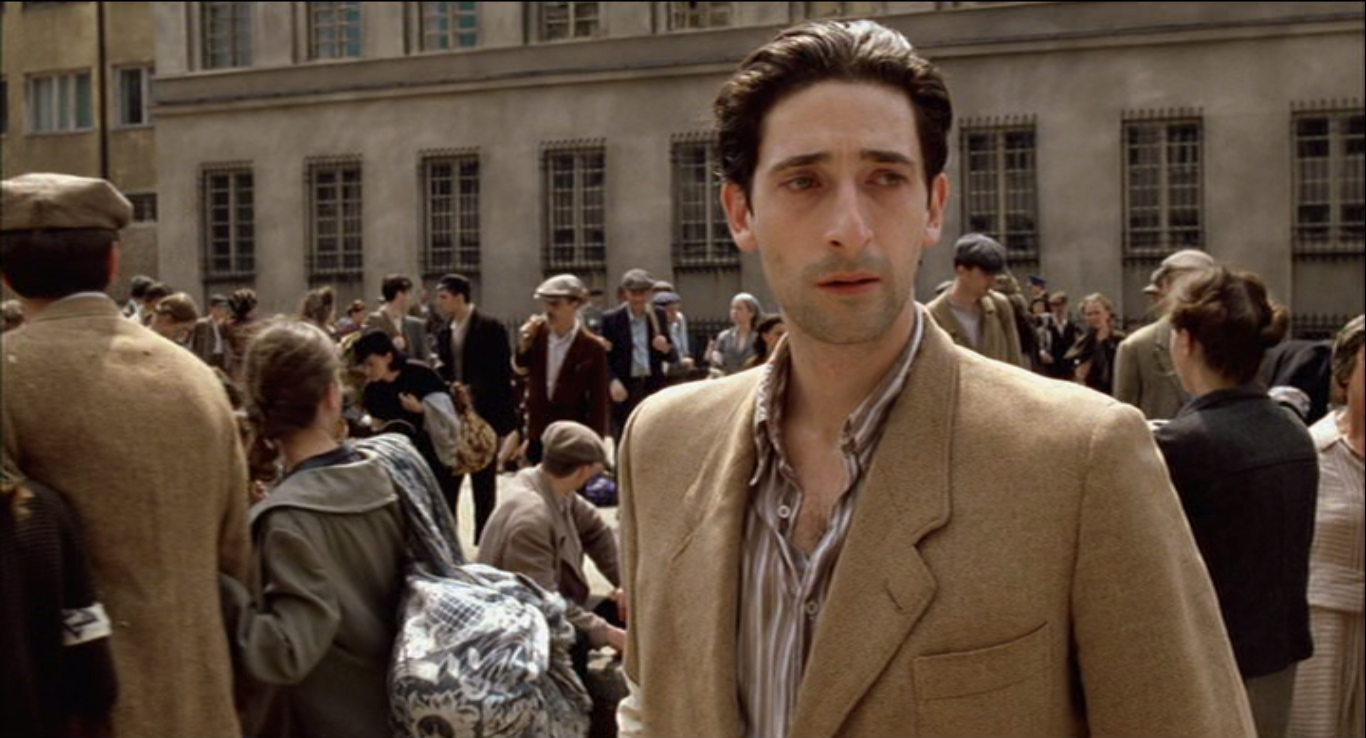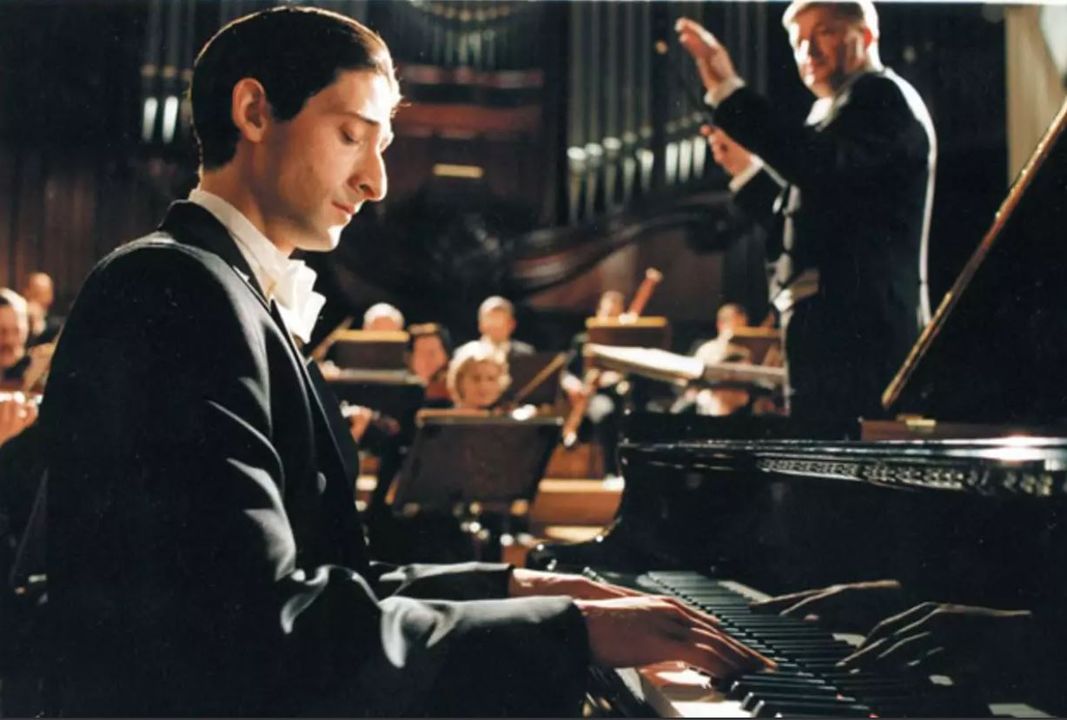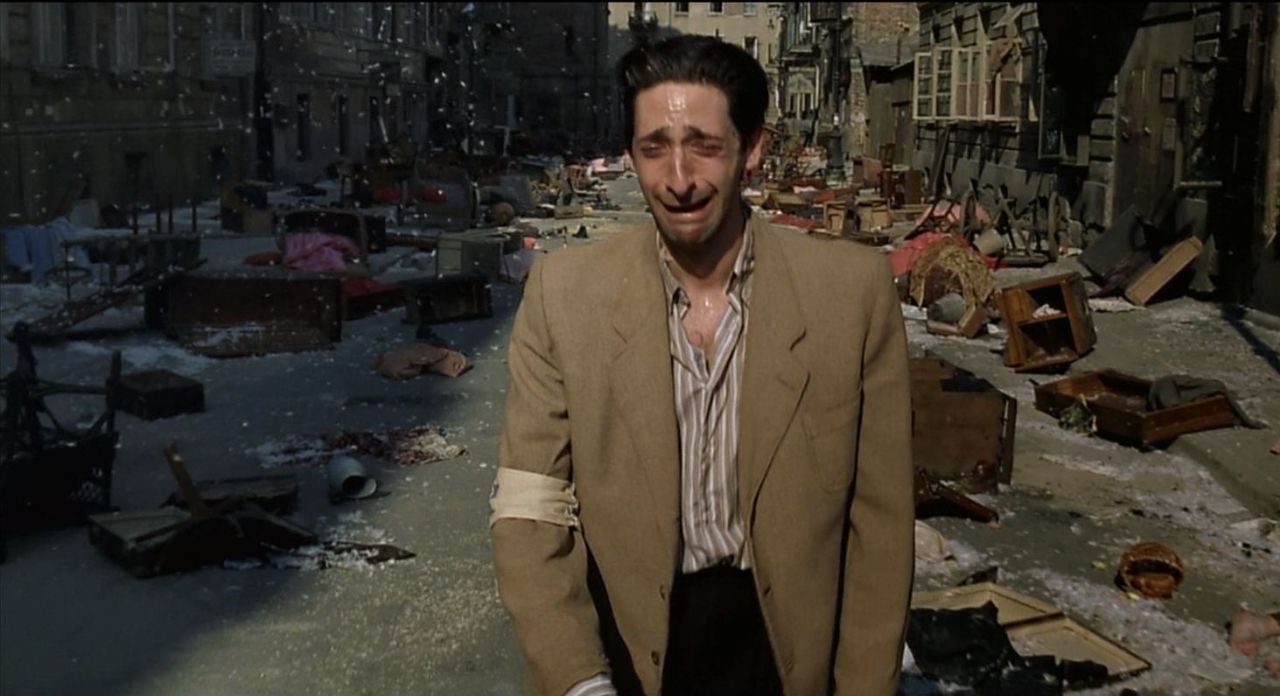🎬 The Pianist (2002)

🎬 The Pianist (2002): A Harrowing Tale of Survival and Resilience
Directed by Roman Polanski, The Pianist (2002) is a masterful and deeply moving portrayal of human endurance during one of history’s darkest periods. Based on the memoir of Władysław Szpilman, a renowned Polish-Jewish pianist, the film chronicles his harrowing survival during the Holocaust. This poignant story is both an ode to the resilience of the human spirit and a sobering reminder of the atrocities of war.

Adrien Brody delivers a tour-de-force performance as Szpilman, capturing the physical and emotional torment of a man stripped of his family, livelihood, and dignity, yet clinging to life and music. His portrayal earned him an Academy Award for Best Actor, making him the youngest actor ever to win the accolade.
The film begins in 1939 Warsaw, with Szpilman enjoying a flourishing career as a pianist for Polish Radio. However, the onset of World War II and the Nazi occupation abruptly shatter his life. The gradual imposition of anti-Semitic laws leads to Szpilman and his family being forced into the Warsaw Ghetto, where they endure unimaginable suffering.
As deportations to concentration camps commence, Szpilman is separated from his family in a heart-wrenching scene, marking the beginning of his solitary struggle for survival. He escapes the ghetto and spends years in hiding, moving between abandoned buildings and relying on the kindness of strangers. Deprivation, fear, and isolation become his constant companions, yet his love for music sustains him.
Polanski, a Holocaust survivor himself, brings an unparalleled authenticity to the film. His direction is unflinching, depicting the horrors of war with stark realism. The scenes of destruction and death in the ghetto are harrowing, yet never gratuitous. They serve to underscore the resilience of those who endured these atrocities.
The film’s cinematography, by Pawel Edelman, is hauntingly beautiful, capturing the decaying grandeur of Warsaw and the bleakness of Szpilman’s circumstances. The muted color palette mirrors the desolation of the era, while the camera lingers on Szpilman’s gaunt figure, emphasizing his fragility and humanity.

Music is a central theme in The Pianist, symbolizing both loss and hope. Szpilman’s performances, particularly his rendition of Chopin’s Ballade in G Minor, are profoundly moving, serving as a testament to the enduring power of art. The music provides a stark contrast to the chaos around him, offering moments of solace and transcendence amidst the despair.
The narrative culminates in a poignant encounter between Szpilman and a German officer, Captain Wilm Hosenfeld (Thomas Kretschmann), who discovers him hiding in a bombed-out building. Instead of turning him in, the officer is moved by Szpilman’s music and helps him survive, demonstrating a rare act of humanity in an inhumane time.
The Pianist received widespread acclaim, winning three Academy Awards, including Best Director and Best Adapted Screenplay, as well as the Palme d’Or at the Cannes Film Festival. Its profound storytelling, exceptional performances, and meticulous craftsmanship make it one of the most important films of its era.

This is more than a story of survival; it’s a meditation on the resilience of the human spirit, the enduring power of art, and the need to remember history’s darkest chapters. The Pianist is a cinematic masterpiece that leaves an indelible mark on all who experience it. 🎹🕊️










